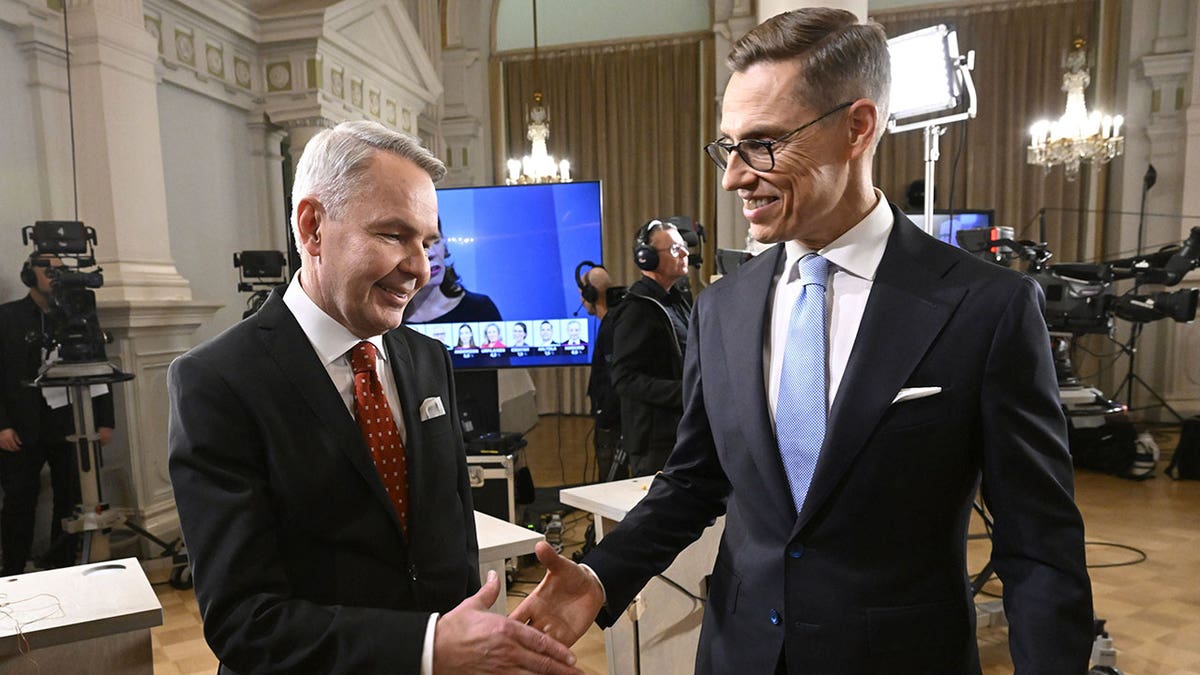Fox News Flash top headlines for January 29
Fox News Flash top headlines are here. Check out what's clicking on Foxnews.com.
- Finland is heading into a presidential election in February between ex-Prime Minister Alexander Stubb and former Foreign Minister Pekka Haavisto.
- Stubb won the first round with 27.2% of the votes, representing the conservative National Coalition Party.
- The president of Finland holds executive power in foreign and security policy, with influence over the military and involvement in domestic politics.
Finland faces a runoff presidential election in February between a former prime minister expected to have the advantage and a former foreign minister who negotiated the country’s recent entry into NATO and was the runner-up in Sunday's first round.
With all ballots counted, ex-Prime Minister Alexander Stubb, who led the government in 2014-2015 and represents the conservative National Coalition Party, won the first round as polls widely predicted, with 27.2% of votes.
Former Foreign Minister and green politician Pekka Haavisto, Finland’s top diplomat in 2019-2023, received 25.8%.
PUTIN PROMISES 'PROBLEMS' FOR FINLAND AFTER IT WAS 'DRAGGED INTO NATO'
Unlike in most European countries, the president of Finland holds executive power in formulating foreign and security policy. The president also commands the military, particularly important in Europe’s current security environment. The head of state largely stays out of domestic politics.

The two candidates with the most preliminary votes, National Coalition Party candidate Alexander Stubb, right, and Social Movement candidate Pekka Haavisto shake hands during a Presidential election event, at the Helsinki City Hall, in Helsinki, Finland, on Jan. 28, 2024. A projection in Finland says Alexander Stubb has won the first round of the presidential election to set up a Feb 11 runoff. (Markku Ulander/Lehtikuva via AP)
Stubb is described as a liberal conservative, while environmentalist Haavisto appeals to center-left viewpoints, but both largely have similar views on Finland’s current foreign policy issues including neighboring Russia and helping war-torn Ukraine.
Finnish media outlets on Monday said Stubb is the clear favorite to win the presidency in the Feb. 11 runoff. He’s likely to receive votes from the supporters of parliament speaker and far-right politician Jussi Halla-aho, who finished third on Sunday with 19% of votes.
The election's main themes have included Finland’s NATO membership, future policies toward Russia, enhancing security cooperation with the United States and the need to continue helping Ukraine with military and humanitarian aid.
Initial voter turnout was 74.9% of about 4.5 million eligible voters.
The popular President Sauli Niinistö sees his second six-year term expire in March. He isn't eligible for reelection.
FINLAND TO CLOSE ENTIRE BORDER WITH RUSSIA OVER CONCERNS OF ‘ORGANIZED’ MIGRANT CROSSINGS
Stubb, 55, has held several key Cabinet positions including foreign, finance and foreign trade minister. He started his political career as a lawmaker at the European Parliament in 2004 and has a special interest in European Union affairs.
Haavisto, 65, is known above all as an environmentalist. He earlier worked as a U.N. diplomat with special focus on Africa as a conflict negotiator.
Finland’s new president will face a markedly different geopolitical and security situation in Europe. It abandoned decades of military nonalignment in the wake of Russia’s invasion of Ukraine to become NATO’s 31st member in April, much to the annoyance of Russian President Vladimir Putin. Russia has a 1,340-kilometer (832-mile) border with the Nordic nation.
NATO membership has made Finland a front line country in the Western military alliance, and the president has a growing status as a security policy leader in the region.
